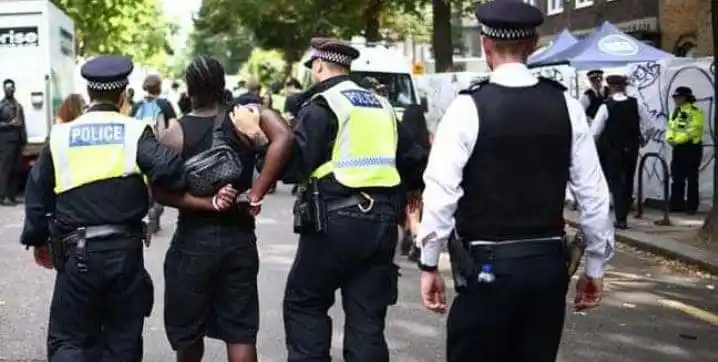CurrentReport Blog The world’s largest street festival, the Notting Hill Carnival, ended in tragedy as no fewer than eight people were confirmed dead and hundreds arrested following a series of violent incidents in West London. The three-day celebration of British Afro-Caribbean culture, which typically draws massive crowds, was marred by shocking levels of violence that have once again raised serious safety concerns.
The Metropolitan Police reported that five people were stabbed on the final day of the carnival, adding to three similar incidents that occurred on Sunday. Among the victims, three sustained life-threatening injuries. A particularly harrowing case involved a woman attending the festival with her child, who narrowly escaped death after a brutal stabbing.
Despite the event’s reputation as a vibrant and colorful celebration, violence has increasingly become a troubling aspect of the Notting Hill Carnival. Last year’s event also saw stabbings and led to around 300 arrests, reflecting a disturbing pattern.
On Monday alone, the police made at least 230 arrests, pushing the total number of arrests over the weekend to more than 300. Those detained faced charges related to possession of offensive weapons, public disorder, drug-related crimes, and assaults on police officers. Among these, 49 people were arrested for carrying weapons, and three firearms were confiscated by law enforcement. Additionally, 35 police officers were injured while attempting to maintain order during the event.
Despite these violent episodes, the Notting Hill Carnival continued to attract hundreds of thousands of attendees, who packed the streets of West London in vibrant costumes, dancing to the music of steel drums, and celebrating British Afro-Caribbean culture.
Deputy Assistant Commissioner Ade Adelekan of the Metropolitan Police expressed deep frustration with the recurring violence, stating, “I am tired of saying the same words every year.” He also highlighted how close the event came to further tragedy and emphasized the importance of public cooperation in reporting crimes to ensure the safety of all participants.
While many revelers were able to enjoy the festivities peacefully, the repeated incidents of knife crime and violence have cast a shadow over what should be a joyous celebration of culture and unity. The festival, which dates back to the 1950s following a wave of immigration from former British colonies after World War II, has come under increasing scrutiny due to ongoing safety concerns.
Despite these challenges, the Notting Hill Carnival remains one of London’s most anticipated cultural events, featuring elaborate costumes, feathered dancers, steel bands, and thundering sound systems. However, the need for enhanced security measures and community cooperation has never been more apparent as the city grapples with how to protect the essence of the festival while ensuring the safety of its participants.












